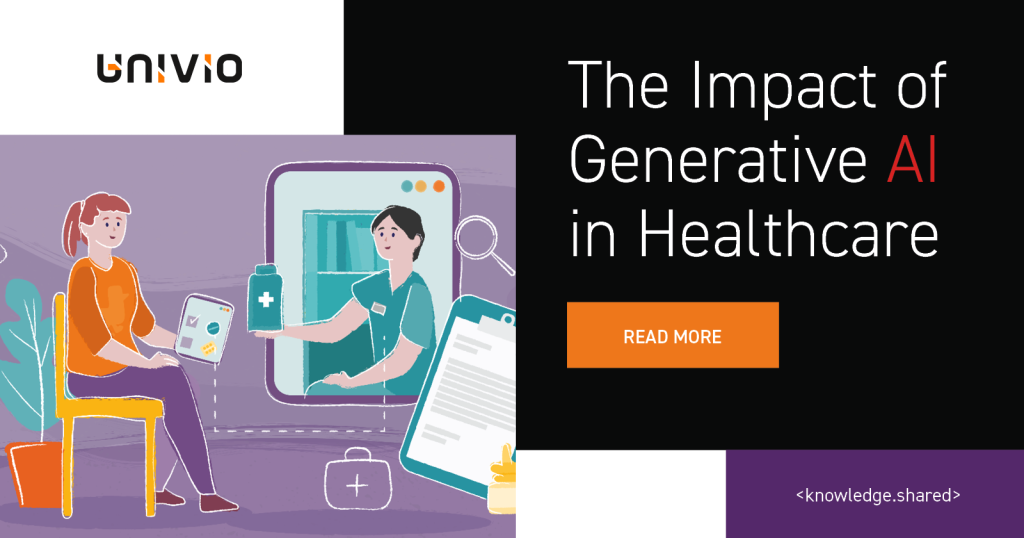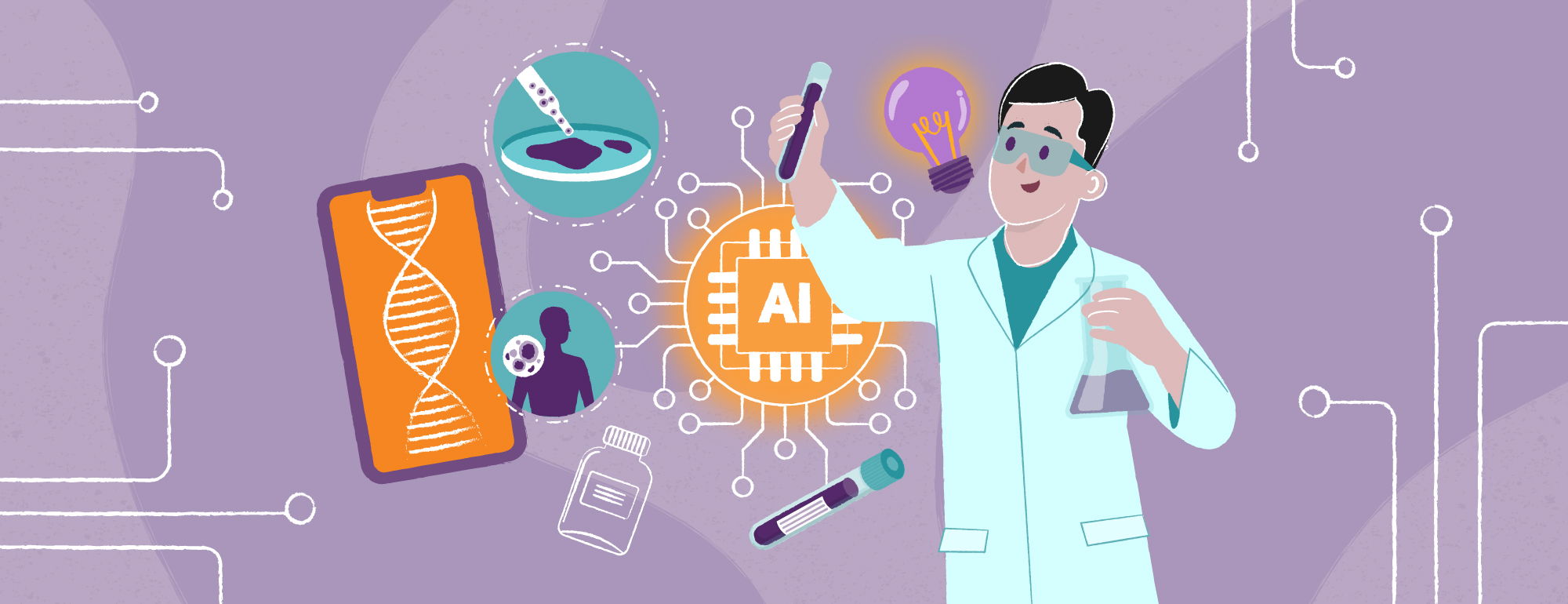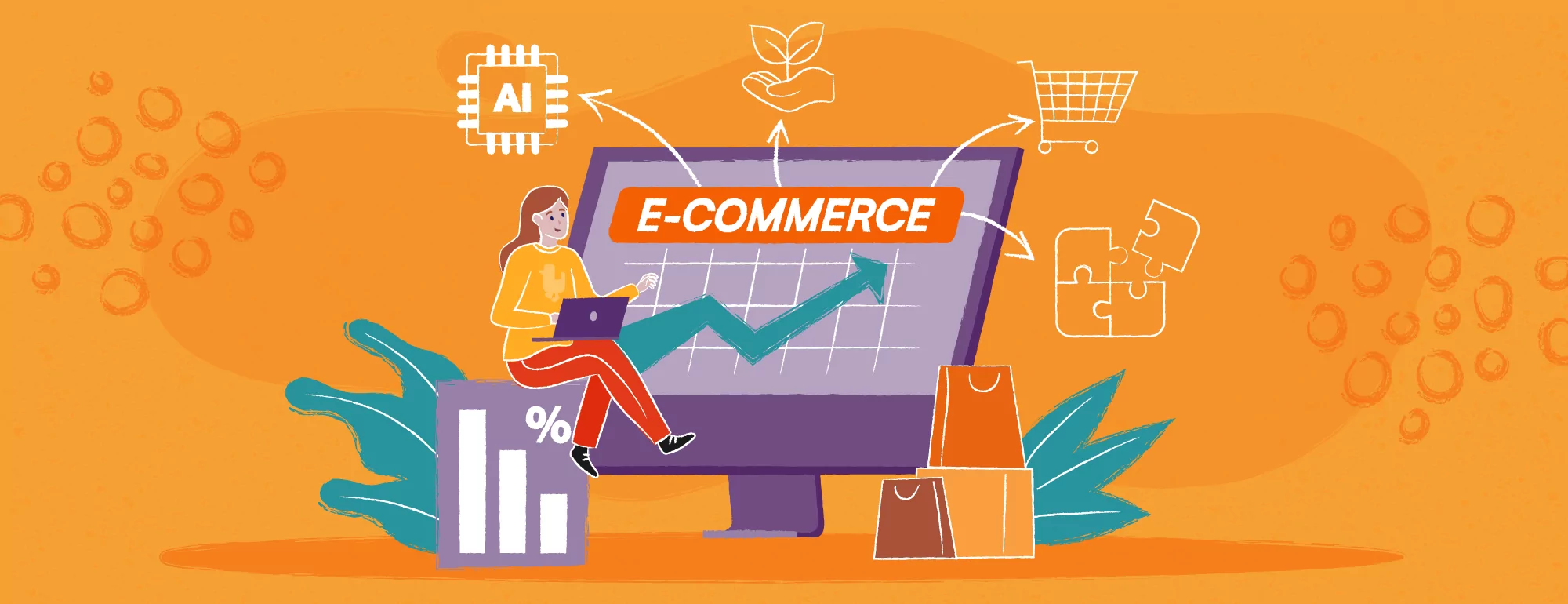How AI is Revolutionizing Drug Discovery?
Artificial intelligence (AI) is gaining importance in various fields, and one of the most promising areas is medicine, in particular the discovery of new drugs and the identification of new applications for existing ones. This topic is prevalent among representatives of the pharmaceutical and medical industries.
Bringing a new drug to market is a complex, experimental process that typically takes 10 to 15 years, and often involves billions of dollars. Traditional drug discovery methods are time-consuming and expensive, and artificial intelligence offers the opportunity to speed up the process while significantly increasing its effectiveness, which is currently about 10%.
This is perfectly illustrated by the example of a breakthrough discovery made by scientists from the Massachusetts Institute of Technology, who used a machine learning algorithm to identify a new superantibiotic called halicin. The researchers programmed the computer model to search for the chemical molecules that are most effective at fighting E. Coli bacteria. The program examined about 2,500 molecules, including 1,700 drugs and 800 natural substances. He then analyzed 6,000 other drugs and selected one with the strongest antibacterial effect, which at the same time has a different structure than existing antibiotics. Halicin turned out to be the killer of dangerous bacteria resistant to the effects of existing drugs – Clostridium difficile, Acinetobacter bumannii, and Mycobacterium tuberculosis. It also has low toxicity to the human body.

The discovery of halicin shows how advanced artificial intelligence algorithms can contribute to solving the most difficult health problems in the modern world and help the pharmaceutical sector discover drugs.
In this article, Dr. Michał Nedoszytko, a Polish cardiologist, Head of the Cardiology Department of the HELORA Hospital in Mons, Belgium, programmer, and enthusiast of new technologies, told us about the impact of AI on modern pharmacology and clinical treatment.
How does artificial intelligence support the process of creating new drugs?
Michał Nedoszytko: Artificial intelligence has great potential in this area. First of all, AI can process and analyze huge amounts of data in a much shorter time. It significantly accelerates the process of discovering new drugs and optimizing existing therapies. Traditional methods are time-consuming and require complex clinical trials on a large scale. Thanks to machine learning algorithms, we can identify potential drug candidates or discover new uses for current drugs faster. An example is the situation during the COVID-19 pandemic when AI identified a drug used in rheumatoid arthritis as potentially effective in treating COVID-19.
Does AI help in discovering new uses for already existing drugs?
M.N: AI is very effective in repurposing, i.e., using existing preparations to treat other diseases. Artificial intelligence algorithms can analyze data from clinical and pharmacological trials to find new therapeutic indications for known substances. As an example, I can mention the drug Remdesivir, which was initially developed as a drug against the Ebola virus and later proved to be effective in the treatment of COVID-19. Another example is the use of Metformin, originally used in treating type 2 diabetes, which has shown potential in the treatment of cancer and cardiovascular diseases. AI also hinted that drugs such as Pirfenidone or Nintedanib, which are used to treat idiopathic pulmonary fibrosis, could be effective in treating heart failure, where the heart muscle also undergoes fibrosis. Thanks to artificial intelligence, certain groups of drugs enter the path of clinical trials much faster.
What are the benefits of using AI in the area of clinical recommendations and new therapies?
M.N.: The process of updating clinical recommendations has been significantly accelerated thanks to artificial intelligence. Recommendations that were previously updated once every 4-6 years, now these recommendations are sometimes revised every year. AI not only helps to identify new drugs but also optimizes the dosage and combinations of existing therapies.
AI is increasingly integrated into medical applications and systems. What future do you foresee for such integrations?
M. N.: A pharmaceutical company can offer drug combinations along with IT applications and AI-based treatment models that optimize the use of these drugs. Such solutions can significantly improve treatment outcomes, reduce mortality, and reduce the number of side effects. In the future, we will see even greater integration of AI with medical and pharmaceutical systems. AI-based models will become increasingly sophisticated and complex, enabling more precise diagnoses and better-tailored therapies.
Which AI technologies are currently the most promising for drug discovery?
M. N.: Worth paying attention to is Google AlphaFold, whose latest version, AlphaFold 3, allows you to model proteins in interaction with other molecules, such as sugars and nucleic acids. This is a huge step forward in structural biology that could significantly speed up the process of discovering new drugs.
One of the most promising directions is the use of multimodal models, which allow for the analysis of very complex data sets with extreme precision. Natural language processing (NLP) can also help analyze vast amounts of text from scientific literature and medical records and then authorize this data, which in turn accelerates the identification of new therapeutic targets and the applicability of existing drugs.
Do you see any risks resulting from the use of AI in medicine?
M.N.: Risks, as well as ethical issues, are a very important aspect of AI development. In Europe, the so-called AI Act was introduced, the first legislation on artificial intelligence, which places very high demands on AI systems, especially in healthcare. These systems are classified in risk categories and must meet several criteria, such as explainability and transparency. On the one hand, these regulations may limit the development of AI in Europe, and on the other hand, they aim to ensure that these technologies are used responsibly. This is not the case in the United States, where the legislative climate is more favorable, which may mean that most of the innovations will come from that region of the world. Big companies like Apple and Microsoft will play a key role in negotiations with regulators, which could affect the future of AI in Europe. Personally, I am optimistic and believe that AI technologies will continue to develop, despite legislative obstacles. Already today, the pace of development of artificial intelligence is unprecedented.
What are the main challenges facing the use of AI?
M. N.: Despite its enormous potential, AI also faces challenges. First of all, the quality of the data is crucial. AI is only as good as the data that goes into it, so errors in the data can lead to wrong conclusions. Ethical and regulatory issues are also very important. We need to make sure that algorithms are transparent and understandable so that they can comply with the applicable regulations. In addition, medical professionals must be properly trained in new technologies so that they can work effectively with AI systems.
How can pharmaceutical companies benefit from AI adoption?
M. N.: Pharmaceutical companies can benefit from the use of AI in their R&D processes. First, reducing the time needed for research and development can significantly reduce costs and increase efficiency. Second, AI can help identify potential risks and side effects at an earlier stage, which in turn can prevent failures in later phases of clinical trials. In addition, AI can support the personalization of treatment, tailoring therapies to the individual needs of patients, which is becoming an increasingly important element of modern medicine, especially in oncology.
What can we expect in the coming years in the context of the development of AI in medicine?
M. N.: The future of AI in medicine and pharmacy seems to be very promising. We are already seeing significant progress, but this is just the beginning. As technology continues to evolve, AI will be able to offer increasingly advanced solutions that will change the way we discover, test, and deploy new drugs. I think that in the coming years, we will see even greater integration of AI in everyday clinical practice and research and development processes. We will see a growing number of breakthroughs in drugs and therapies that will be made possible by advanced data analytics. We can also expect to see an increase in interest in precision medicine, and AI will help tailor therapies to the specific needs of patients, as well as better manage chronic diseases through continuous monitoring and real-time data analysis.

Summary
Artificial intelligence is bringing revolutionary changes in the discovery of new drugs and in the repurposing of existing pharmacological substances, and its further development can significantly improve the quality of life of patients around the world. The ability to analyze genetic data and biomarkers will also increase, bringing new opportunities in personalizing therapy.
The integration of AI in clinical practice will require medical institutions to collaborate with technology and research companies. Open databases and joint research projects will be essential for further progress in this field. Thanks to the use of AI, it will be possible to prevent and treat many diseases more effectively, which will bring undeniable benefits to the health of the global population.









